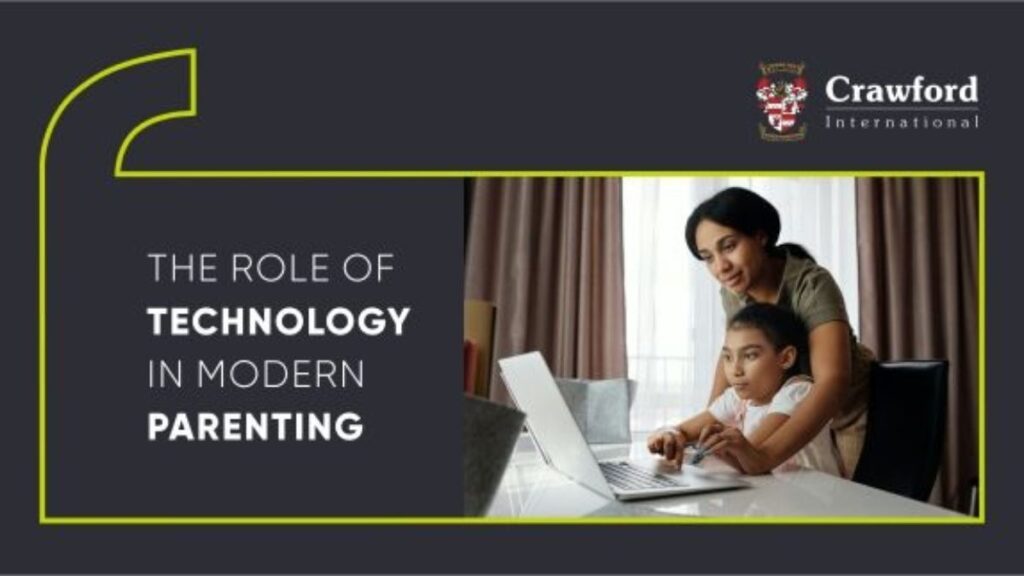In today’s rapidly evolving world, technology has become an integral part of daily life. From smartphones and social media to artificial intelligence (AI) and virtual reality (VR), technology influences nearly every aspect of society, including parenting. Modern parenting, which once relied on traditional methods, has been reshaped by the advent of new technologies. The influence of tech on parenting practices is both profound and far-reaching, offering parents new tools, resources, and challenges.
This article delves into the various ways technology is impacting modern parenting, examining both the positive and negative effects, as well as offering insights on how to strike a balance between tech and traditional parenting techniques.
Technology and Its Role in Parenting Today
The relationship between parents and technology today is far more complex than it ever has been before. In earlier generations, parents would rely on books, word of mouth, or advice from experts to navigate the challenges of raising children. However, today’s parents have access to an overwhelming amount of information, most of which is readily available through their phones or computers. Social media platforms, blogs, online parenting forums, and apps have revolutionized how parents approach child-rearing.
From pregnancy advice to toddler activities, and even teenage behavior management, technology provides a plethora of resources for every stage of a child’s life. Parenting apps can track developmental milestones, provide expert tips, and offer a platform for community support. For instance, platforms like BabyCenter or The Bump provide helpful information and forums where parents can discuss their concerns and share experiences.
In addition to informational resources, technology also offers practical tools for parents. Smart home devices, baby monitors with HD cameras, fitness trackers for children, and learning apps designed for kids are just a few examples of how tech helps parents keep their children safe and engaged. Digital parenting solutions can make everyday tasks more manageable, from keeping track of a child’s schedule to monitoring their screen time.
The Pros of Tech in Modern Parenting
1. Enhanced Communication and Convenience
One of the most immediate benefits of technology in parenting is its ability to enhance communication and convenience. With smartphones and messaging apps, parents can stay connected with their children no matter where they are. This is particularly useful for busy parents who may be juggling work, school, and other commitments. Parents can quickly check in with their kids during the day, ask about homework, or ensure they are safe while out with friends.
Moreover, the convenience of ordering groceries, clothes, or other essentials online has made life easier for parents. Instead of spending time running errands, they can now make purchases with a few clicks and have items delivered directly to their homes. This flexibility is particularly beneficial for parents who may not have a lot of free time to dedicate to shopping or other household tasks.
2. Educational Benefits and Learning Opportunities
Technology offers a wide range of educational tools that can enhance children’s learning experiences. With interactive educational apps and websites, children can engage in personalized learning at their own pace. Platforms such as Khan Academy, Duolingo, or ABCmouse provide access to educational content that can help children build skills in areas like math, science, and reading.
In addition, technology helps parents facilitate remote learning, which has become increasingly important during the COVID-19 pandemic. Online learning platforms allow children to access courses and educational resources from the comfort of their home, making education more accessible and flexible. In many cases, tech-based learning is not only effective but can also be more engaging for children who may not be as interested in traditional schooling methods.
3. Monitoring and Safety
Tech devices also allow parents to monitor their children’s safety in real-time. GPS-enabled devices and apps like Find My iPhone or Life360 help parents track the location of their children. This feature is especially useful for parents of teenagers, who may spend time out with friends or commute to school independently. By tracking their child’s movements, parents can ensure they are safe and avoid unnecessary worry.
In addition to tracking devices, smart home technology like video doorbells or security cameras allows parents to monitor their homes and ensure their children are safe. These devices offer peace of mind, allowing parents to check in on their children or monitor situations at home remotely.
The Cons of Tech in Modern Parenting
1. Over-reliance on Technology
While technology can make parenting more convenient, there is a growing concern about an over-reliance on digital tools. Some parents may find themselves turning to technology as a substitute for real-life interaction, relying on apps or gadgets to solve parenting problems rather than using traditional, hands-on methods.
For example, many parents today use tablets or smartphones as babysitters, providing their children with digital entertainment for hours on end. While tech can offer educational content, excessive screen time can also lead to developmental delays, sleep issues, and reduced physical activity. The American Academy of Pediatrics recommends that children under the age of two should have no screen time, and older children should have limited use. Parents must be mindful of how much time their children spend using technology, ensuring it doesn’t interfere with critical aspects of their development, such as physical play, sleep, and face-to-face social interactions.
2. Increased Screen Time and Its Impact on Health
There is growing evidence suggesting that excessive screen time can have negative effects on children’s health. Prolonged exposure to screens has been linked to an increased risk of obesity, poor posture, eye strain, and sleep disturbances. Children who spend too much time in front of screens may also be more prone to issues such as anxiety, depression, and social isolation.
The lure of social media and online content can be particularly harmful to teenagers, who may become overly focused on their online image, leading to low self-esteem and other mental health challenges. In an age where social media is prevalent, the pressure to conform to online standards of beauty, success, and popularity can be overwhelming for young people.
Parents need to be proactive in managing screen time, setting boundaries, and encouraging children to engage in offline activities like outdoor play, reading, and spending quality time with family and friends.
3. Online Safety and Privacy Concerns
As children spend more time online, the risk of exposure to inappropriate content or harmful online interactions increases. The internet is full of dangers, including cyberbullying, online predators, and inappropriate content. Parents must take proactive measures to ensure their children are safe online. This includes setting privacy settings, using parental control apps, and regularly discussing online safety with their children.
Furthermore, privacy concerns are heightened when it comes to using tech devices. Smart toys, wearables, and even some learning apps collect data from children, which raises questions about how this information is used and who has access to it. Parents must be vigilant about the data their children share online and consider the long-term implications of allowing their children to interact with connected devices.
Finding the Balance: Tech and Traditional Parenting
Despite the challenges posed by technology, it is important to recognize that it is not inherently bad for children or parents. In fact, when used thoughtfully, technology can complement traditional parenting methods and help create a balanced approach to raising children in the digital age.
One of the key ways to strike this balance is through setting healthy boundaries. Parents should establish clear rules for when and how technology is used in the home. For example, they can set designated screen-free times, such as during meals or before bed, and encourage activities that promote physical activity, socialization, and creativity.
Furthermore, it is essential for parents to model healthy tech use themselves. Children often imitate the behaviors they observe, so parents should demonstrate how to use technology responsibly and encourage face-to-face interactions. By leading by example, parents can help their children understand the importance of balance and moderation when it comes to tech.
Conclusion
The impact of technology on modern parenting is undeniable. While it brings a host of benefits, such as enhanced communication, educational opportunities, and increased safety, it also presents challenges, including over-reliance on digital tools, negative health impacts, and concerns about online safety. As parents, it is essential to strike a balance between utilizing the advantages of technology and maintaining traditional parenting practices that prioritize face-to-face connections, physical activity, and healthy boundaries.
By being mindful of how tech is integrated into family life, parents can harness its power while mitigating its potential downsides, ultimately raising well-rounded, healthy, and digitally responsible children.



